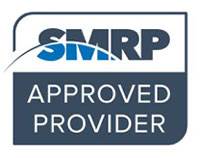Level I Certified Infrared Thermographer is the starting point for your study of infrared thermography if you are going to start your own business of infrared inspection or work as a facility maintenance position.
Level I Certified Infrared Thermographer® is a five-day course for the application of qualitative thermal imaging for P/PM, Condition Assessment, Condition Monitoring, Quality Assurance, Forensic Investigations, and Building Sciences.
This course covers infrared theory, heat transfer concepts, equipment operation and selection, standards compliance, image analysis, and report generation.
Students are trained to identify and document thermal patterns caused by improper design, workmanship, or material failure. Specific applications include electrical distribution systems, mechanical systems, steam systems, refractory systems, underground piping, active thermography, building envelopes, and flat roofs.
Students are encouraged to bring their own imager for individualized training or to learn how to use it more effectively.
Course tuition includes all course presentations, Student Reference Manual, and Infraspection Institute Certified Infrared Thermographer® exam. Certification card and diploma issued with a passing grade of 80%.
This course is eligible for 40 NETA Continuing Technical Development Credits (CTDs). NETA Certified Technicians (Level III and Level IV) are required to earn a minimum of 48 CTDs every three years to maintain their certification.
The course is approved by the InterNational Association of Certified Home Inspectors for 32 hours of continuing education and meets the training requirements for their Infrared Certified professional designation and logo.
The course is also approved for 32 Continuing Education Hours (CEH) by RCI, Inc.
Prerequisite: None
1. Basic Infrared Theory
- Heat transfer
- Electromagnetic spectrum
- Emittance, reflectance, and transmittance
- Atmospheric transmission
- IR wavebands and lens materials
2. Infrared Equipment
- Selection criteria
- Range and level settings
- Class demonstrations
- Manufacturer equipment presentations (optional)
- Hands-on use in class
3. Infrared Electrical System Inspections
- Theory and thermal signatures of problems
- Seven types of detectable defects
- Conducting an inspection
- Safety practices
- Confirming exceptions
- Data recording
- Standards for inspections
4. Infrared Mechanical System Inspections
- Theory and thermal signatures of problems
- Rotating equipment
- Power transmission components
- High-temperature insulation
- Steam systems, process equipment, heat exchangers, storage vessels
- Active thermographic inspection techniques
- Safety practices
- Confirming exceptions
- Data recording
- Standards for inspections
5. Infrared Roof Inspections
- Theory and component construction
- Insulation and material characteristics
- Inspection techniques
- Weather variables and influences
- Required site conditions
- Safety practices
- Thermal signatures of latent moisture
- Verification of data
- Data recording
- Alternate methods of moisture detection
- Standards for inspections
6. Infrared Building Inspections
- Theory and component construction
- Insulation and material characteristics
- Inspection techniques
- Weather variables and influences
- Required site conditions
- creating sufficient Delta T
- Thermal signatures
- missing & damaged insulation
- air leakage
- latent moisture
- pest damage
- Mold detection
- Other tools
- Verification of data
- Data recording
- Standards for inspections
7. Implementing an IR Predictive Maintenance Program
- 9 steps to setting up a program
- Integrating with other predictive technologies
- Cross-verifying with other predictive technologies
- Why programs fail, how they succeed
- Generating standards-compliant reports

Infraspection Institute is recognized by the Society for Maintenance & Reliability Professionals (SMRP) as an approved provider of continuing education and training aligned with key subject areas related to reliability and physical asset management.


